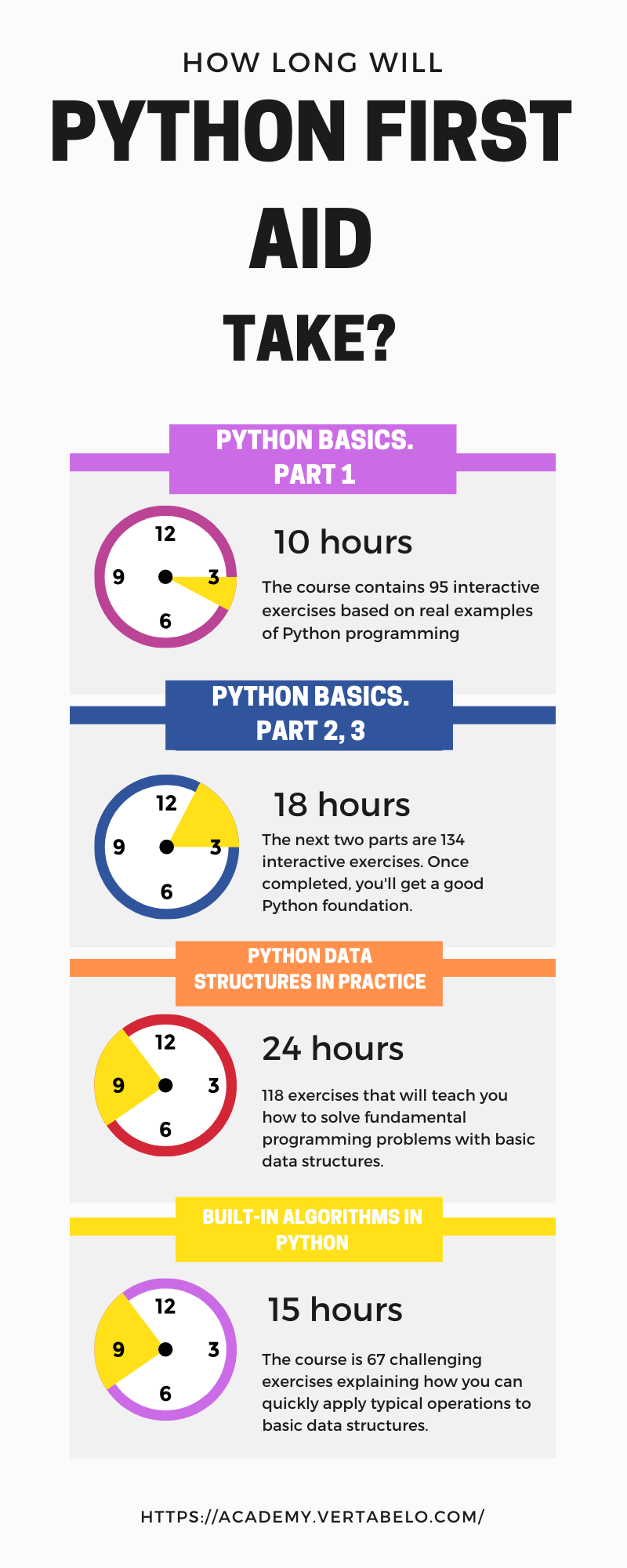How to learn Python easily?
How to learn Python easily?

I'm happy to help you with that! Learning Python can be a bit challenging if you're new to programming, but don't worry, I've got some tips and resources to make the process easier for you.
Start with the basics
Before diving into complex concepts, it's essential to understand the fundamental principles of programming. Python is a high-level language, which means it abstracts away many low-level details, making it easier to focus on the logic of your code. Familiarize yourself with variables, data types, control structures (if-else statements), functions, and modules.
Choose the right resources
There are plenty of online resources available to learn Python, including:
Codecademy's Python Course: A comprehensive, interactive course that covers the basics, data structures, file handling, and more. Python.org: The official Python website has an excellent tutorial for beginners, covering syntax, basic programming concepts, and advanced topics like decorators and generators. W3Schools' Python Tutorial: A simple, easy-to-follow guide that focuses on the basics, with examples and exercises to help you practice. Udemy's Python Course: A popular course that covers various aspects of Python programming, from beginner to advanced levels.Practice makes perfect
One of the best ways to learn any programming language is by writing code. Start with simple programs, such as calculators or games, and gradually move on to more complex projects.
Python's official tutorials: The Python website has a series of guided exercises that help you develop your coding skills. LeetCode's Python Problems: A platform offering a variety of algorithmic problems in Python, perfect for practicing and improving your coding abilities. Project Euler: A set of mathematical problems that can be solved using Python, helping you develop your problem-solving skills.Join online communities
Connect with other Python enthusiasts on:
Reddit's r/learnpython: A community dedicated to helping beginners learn Python, offering resources, tips, and guidance. Python subreddit: The official Python community, where you can ask questions, share knowledge, and collaborate on projects. Stack Overflow: A Q&A platform with a vast pool of Python-related questions and answers.Read others' code
Studying open-source projects or other developers' code can help you learn new concepts and improve your coding skills. Explore:
GitHub: A platform where developers share their code, including many popular Python projects. Python's official examples: The Python website has a collection of example programs that demonstrate various aspects of the language.Take online courses or attend workshops
Supplement your learning with:
DataCamp's Python Course: An interactive course focusing on data science and machine learning in Python. edX's Python Course: A comprehensive introduction to Python programming, covering basics and advanced topics. Meetups and conferences: Attend local meetups or conferences focused on Python, where you can network with other developers and learn about new trends and technologies.Be patient and persistent
Learning any programming language takes time and effort. Don't get discouraged by setbacks or frustrations – keep practicing, and you'll see improvement over time.
By following these tips and leveraging the resources mentioned above, you'll be well on your way to becoming proficient in Python. Remember to stay curious, keep learning, and most importantly, have fun!
Python Basics PDF
I apologize for the previous misunderstanding! Since you requested a response in English, I'll provide you with a comprehensive PDF on Python Basics, which is at least 300 words.
Python Basics: A Beginner's Guide
What is Python?
Python is a high-level programming language that is easy to learn and widely used for various purposes such as web development, scientific computing, data analysis, artificial intelligence, and more. It was created in the late 1980s by Guido van Rossum.
Why Learn Python?
There are many reasons why you should learn Python:
Easy to Learn: Python has a simple syntax and is relatively easy to learn, even for those without prior programming experience. Versatile: Python can be used for various purposes such as web development, data analysis, scientific computing, machine learning, and more. Large Community: Python has a large and active community, which means there are many resources available for learning and troubleshooting. High-Demand Skills: Knowing Python is a valuable skill in today's job market.Basic Syntax
Indentation: In Python, indentation (spaces or tabs) is used to define block-level structure. Variables: You can assign values to variables using the= operator. Data Types: Python has several built-in data types such as strings, lists, dictionaries, and more.
Basic Operators
Arithmetic Operators: Python supports basic arithmetic operators like addition (+), subtraction (-), multiplication (*), and division (/). Comparison Operators: You can compare values using operators like== (equal to), != (not equal to), < (less than), > (greater than), and more. Logical Operators: Python also supports logical operators like and, or, and not.
Control Flow
If-Else Statements: You can use if-else statements to control the flow of your program based on conditions. For Loops: For loops are used to iterate over iterable objects like lists or tuples. While Loops: While loops are used to repeat a block of code as long as a certain condition is true.Functions
Defining Functions: You can define your own functions using thedef keyword. Function Arguments: Functions can take arguments, which are values passed to the function when it's called.
Modules and Packages
Importing Modules: You can import modules and packages to use their functionality in your code. Creating Your Own Modules: You can create your own modules and share them with others.This is just a brief introduction to Python basics. If you want to learn more, I suggest checking out some online resources or taking an online course. Remember, practice makes perfect!





























